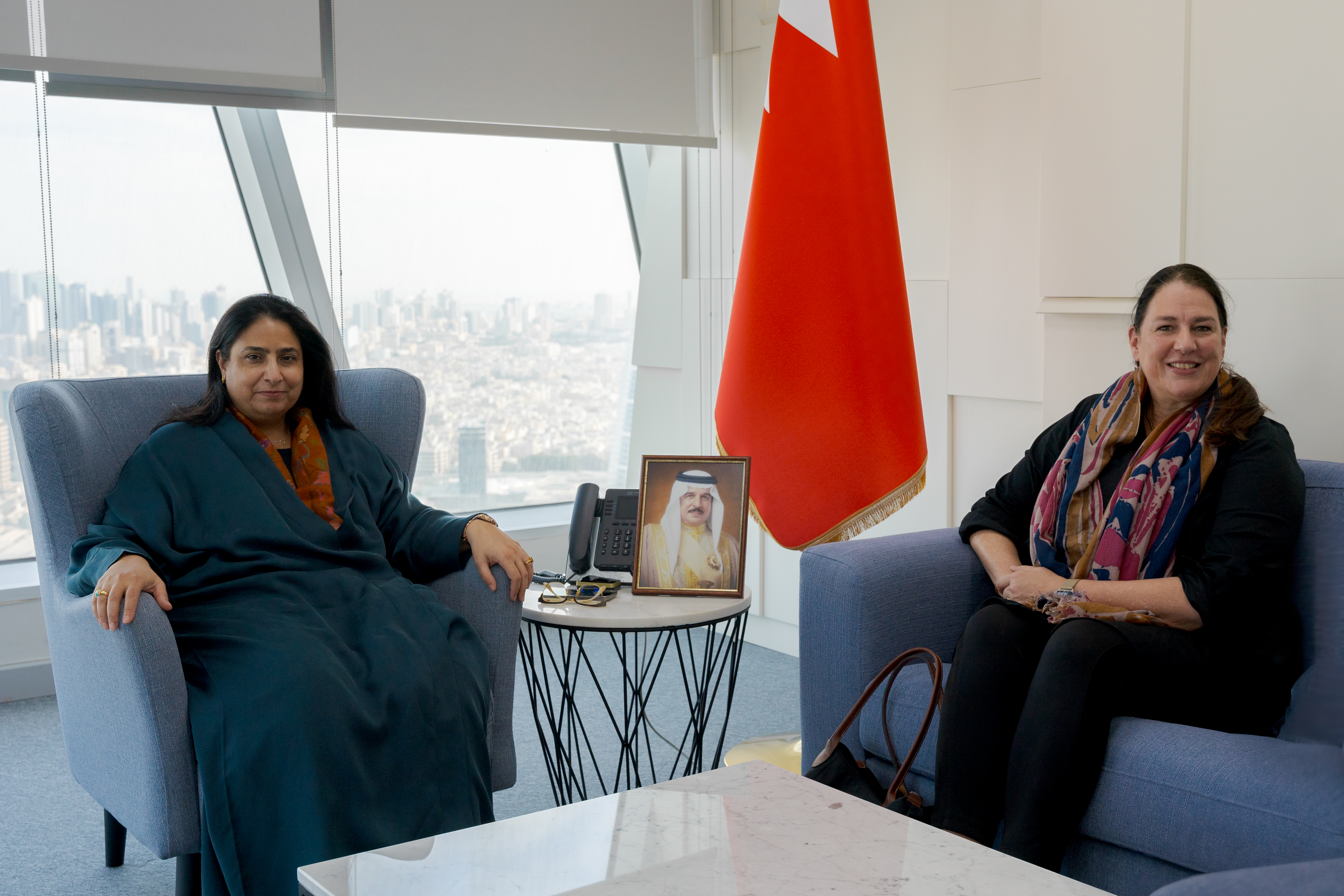

Her Excellency Dr. Shaikha Rana Bint Isa Bin Duaij Al Khalifa, Director General of the Institute of Public Administration, received Her Excellency Dr. Inga Renalter, Member of the German Parliament (Bundestag), and a member of the Committee on Education, Research, and Parliamentary Technology Assessment. During the meeting, they discussed areas of mutual cooperation and ways to strengthen collaboration in the fields of education, training, scientific research, and innovation.
Her Excellency Dr. Shaikha Rana Bint Isa Bin Duaij Al Khalifa emphasized the Institute’s commitment to enhancing partnerships and expanding cooperation with leading international institutions such as the German Parliament. She highlighted the significance of parliamentary diplomacy in strengthening bilateral relations, supporting joint projects, and achieving the shared goals and aspirations of both nations and their friendly peoples.
For her part, Dr. Inga Renalter praised the Kingdom of Bahrain’s efforts in advancing national talent both locally and internationally, as well as its notable achievements in this area. She expressed her eagerness to further enhance bilateral cooperation across various sectors in a way that serves the mutual interests of both countries and their peoples, wishing Bahrain continued progress and prosperity.
| Image Caption:
– |
| To connect with our Institute of Public Administration:
Tel: (+973) 17383810 Fax: (+973)17383839 Email: pr@ipa.gov.bh Website: www.ipa.gov.bh Brief about the Institute: The Institute was established by Decree No. 65 of 2006, issued by His Majesty King Hamad Bin Isa Al Khalifa of the Kingdom of Bahrain on June 28, 2006. It is a government entity affiliated with the Cabinet. In line with its responsibilities, the Institute of Public Administration works to enhance government performance in areas such as policies, strategies, resource management, change management, and the development of government services. This is achieved through skill development, behavior enhancement, and knowledge acquisition via learning and training. Additionally, the Institute contributes to decision-making through consulting, problem-solving using scientific research methods, and capacity-building through assessment and personal coaching. Furthermore, the Institute promotes awareness and fosters a culture of government performance through strategic communication. |
